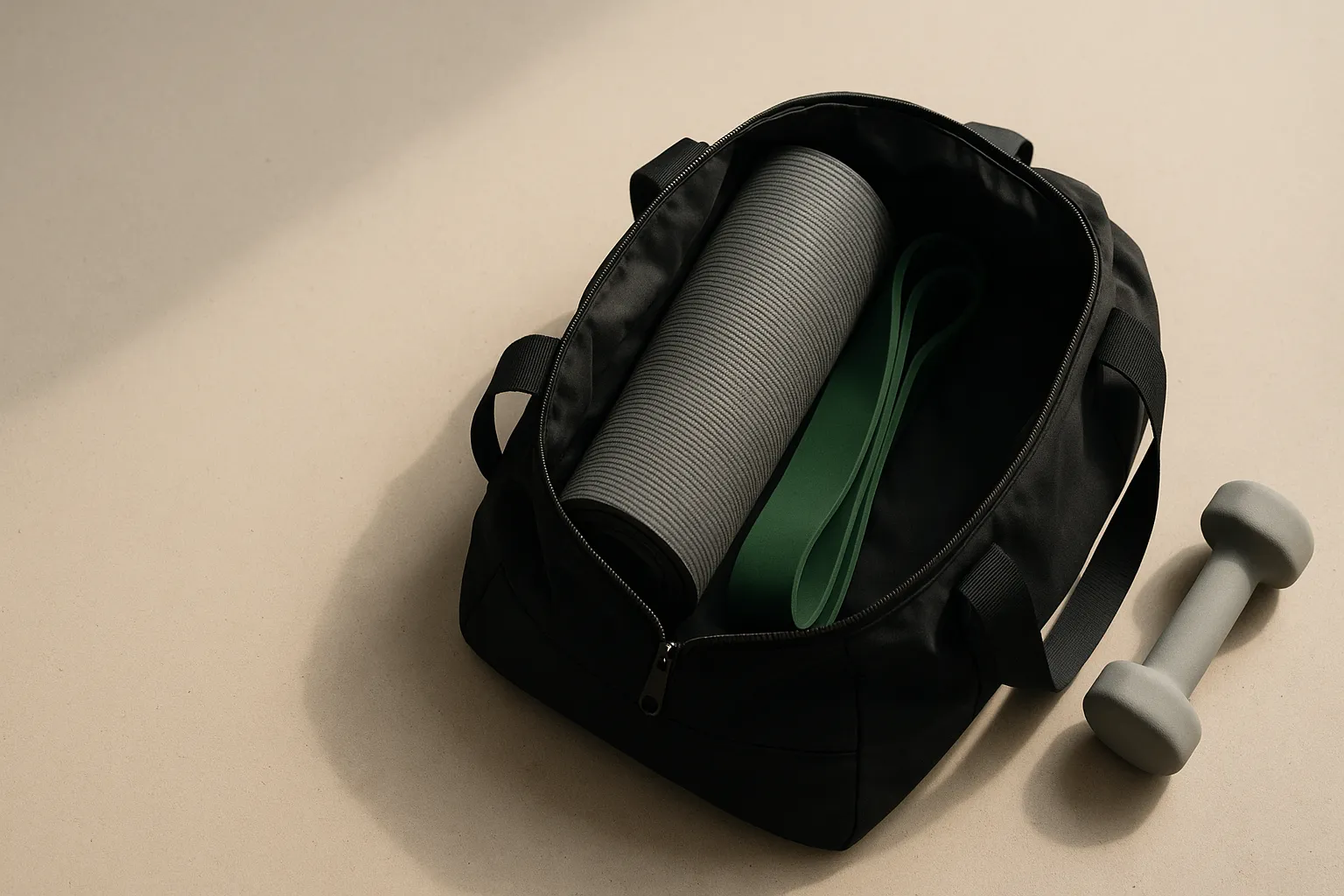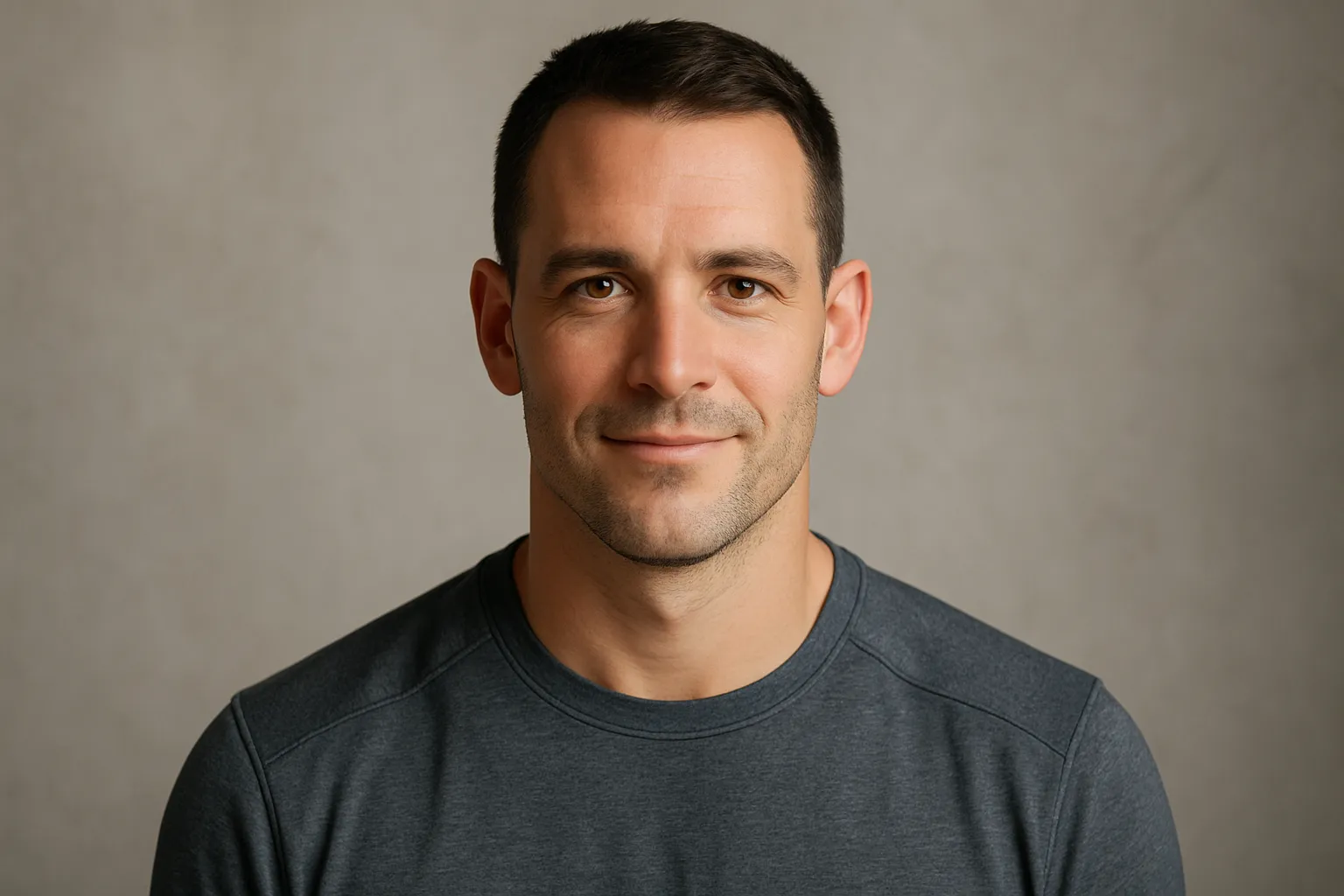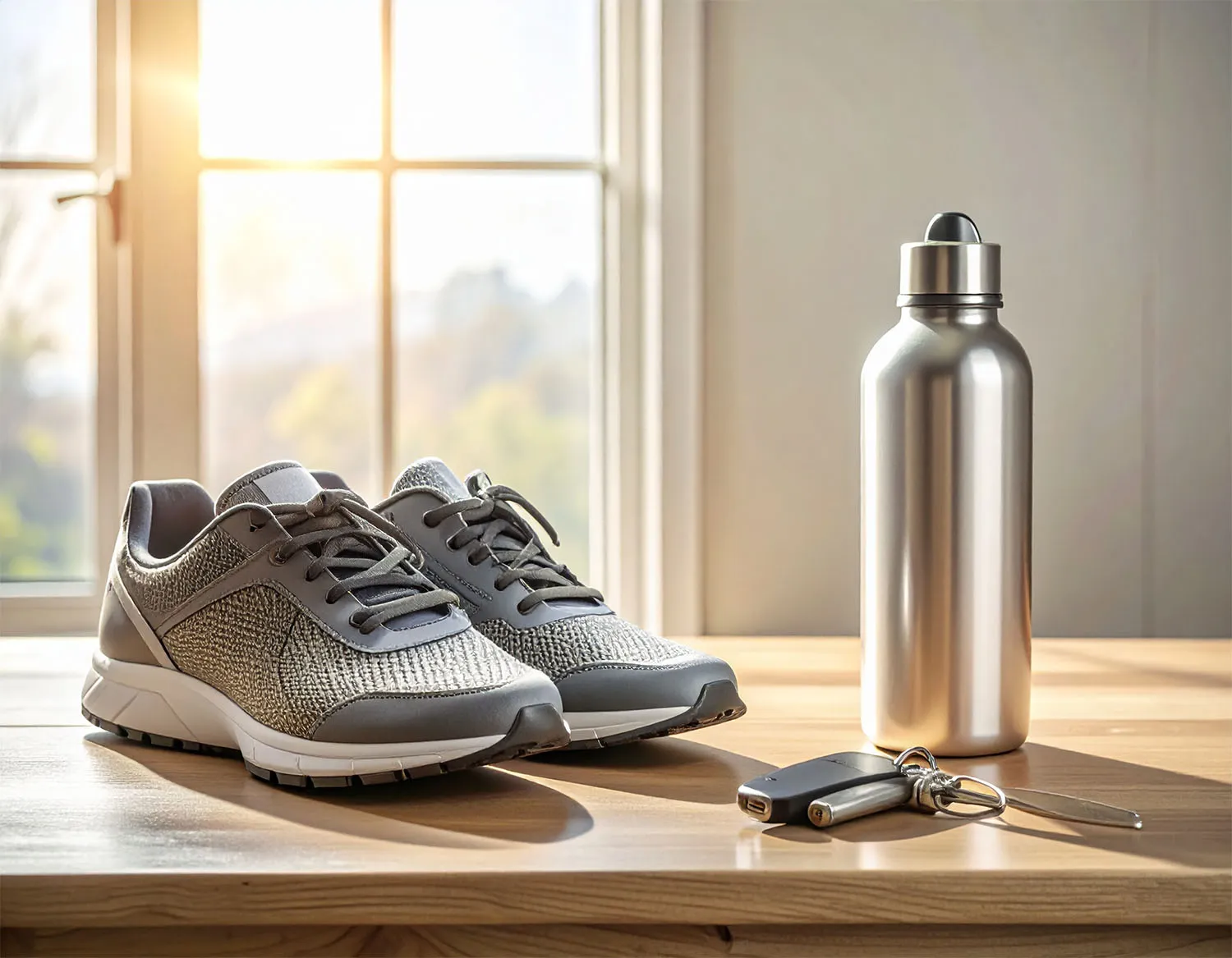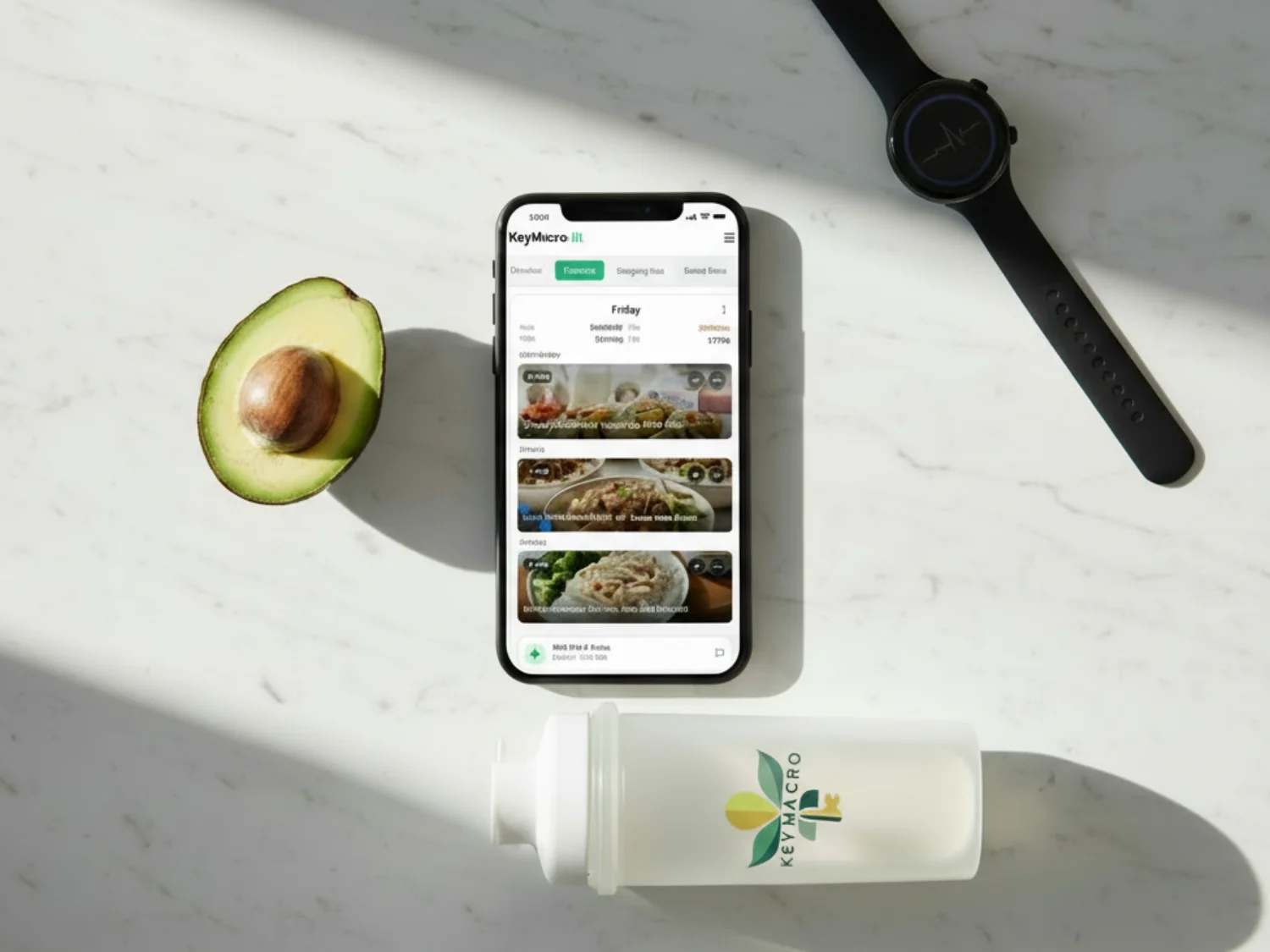Perfection is fragile; consistency is durable. “Never miss twice” accepts that slips happen and focuses you on **the next rep**—the smallest action that restarts momentum.

Why it works
· Self‑compassion is linked to better health behaviors and adherence, helping people re‑engage after setbacks instead of spiraling.¹²
· If‑then plans (“When I miss, then I do a minimum‑viable version next opportunity”) reduce friction and protect streaks.³
· Simple tracking keeps lapses visible but non‑dramatic, nudging swift restarts.⁴⁵
Playbook for common slips
· Missed a workout? Do 10–15 minutes today (walk, mobility, or one main lift). Log it as a “recovery vote.”
· Ate off-plan? Center the next meal on *protein and produce*, then carry on—no punishment protocols.
· **Late night?** Run a **short** version of your wind-down tonight and chase morning daylight tomorrow.
Design your safety net
· Minimum‑viable versions (MVVs): 1 set per lift; 10‑minute walk; pre‑made high‑protein breakfast.
· If‑then templates: “If I miss my morning session, then I’ll do 15 minutes before dinner.”
· Compassion cue: A sticky note that reads, “Restart fast.”
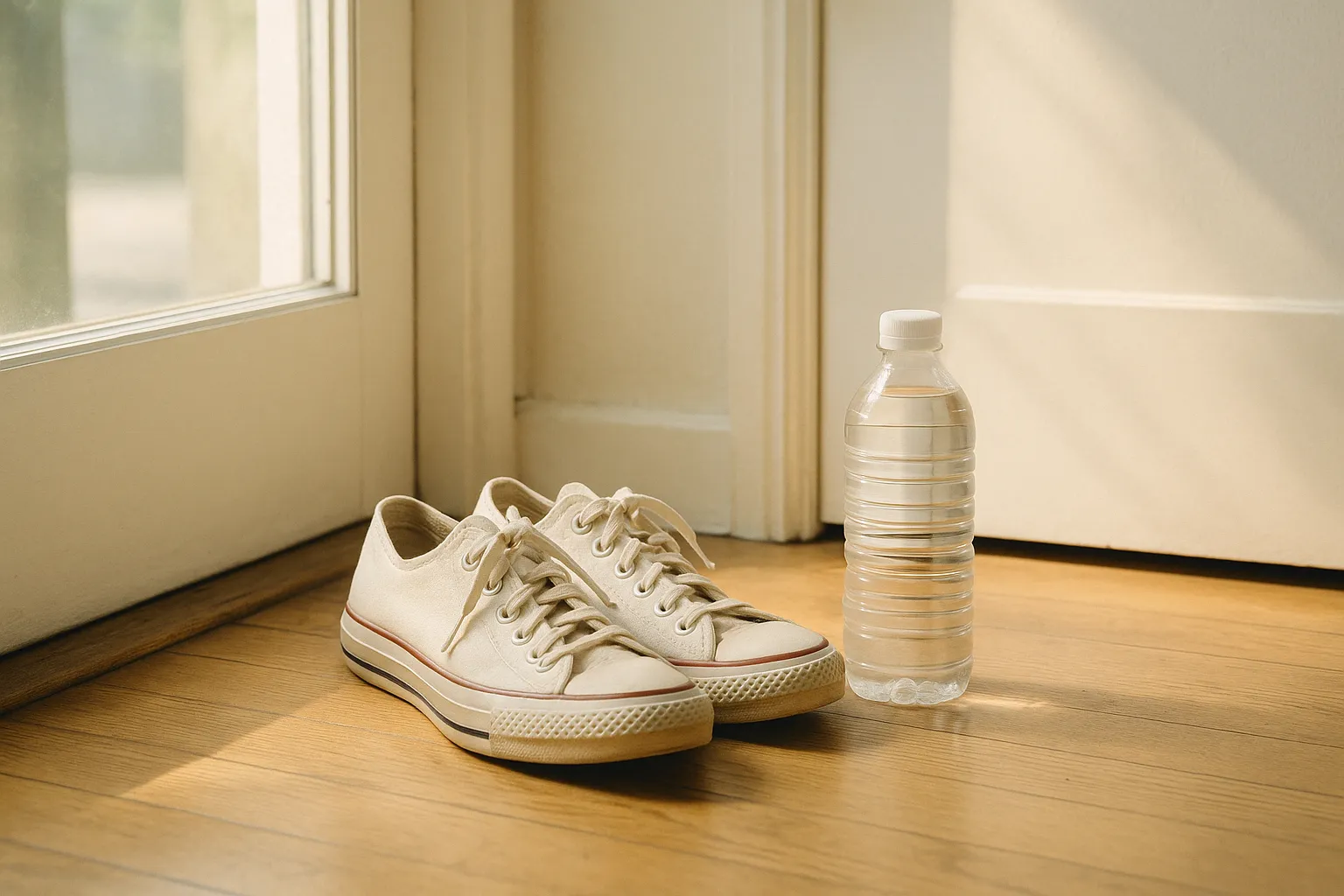
The mindset
You’re not starting over; you’re continuing—casting one more vote for your identity.
References
1) Meta‑analysis: self‑compassion relates positively to health behaviors and physical health across large samples.
2) Medical samples: self‑compassion associated with better adherence.
3) Implementation intention evidence: robust, cross‑domain improvements in doing what you planned.
4) Reviews show self‑monitoring supports better outcomes in weight/activity programs.
5) Recent cohort/RCT data link adherence to tracking and goals with higher odds of meaningful weight loss.
Ready to turn what you just learned into a plan you can follow?
KeyMacro creates simple, high-protein weekly meal plans in seconds — no tracking, no overwhelm, no complicated decisions.
Start your first plan today.




